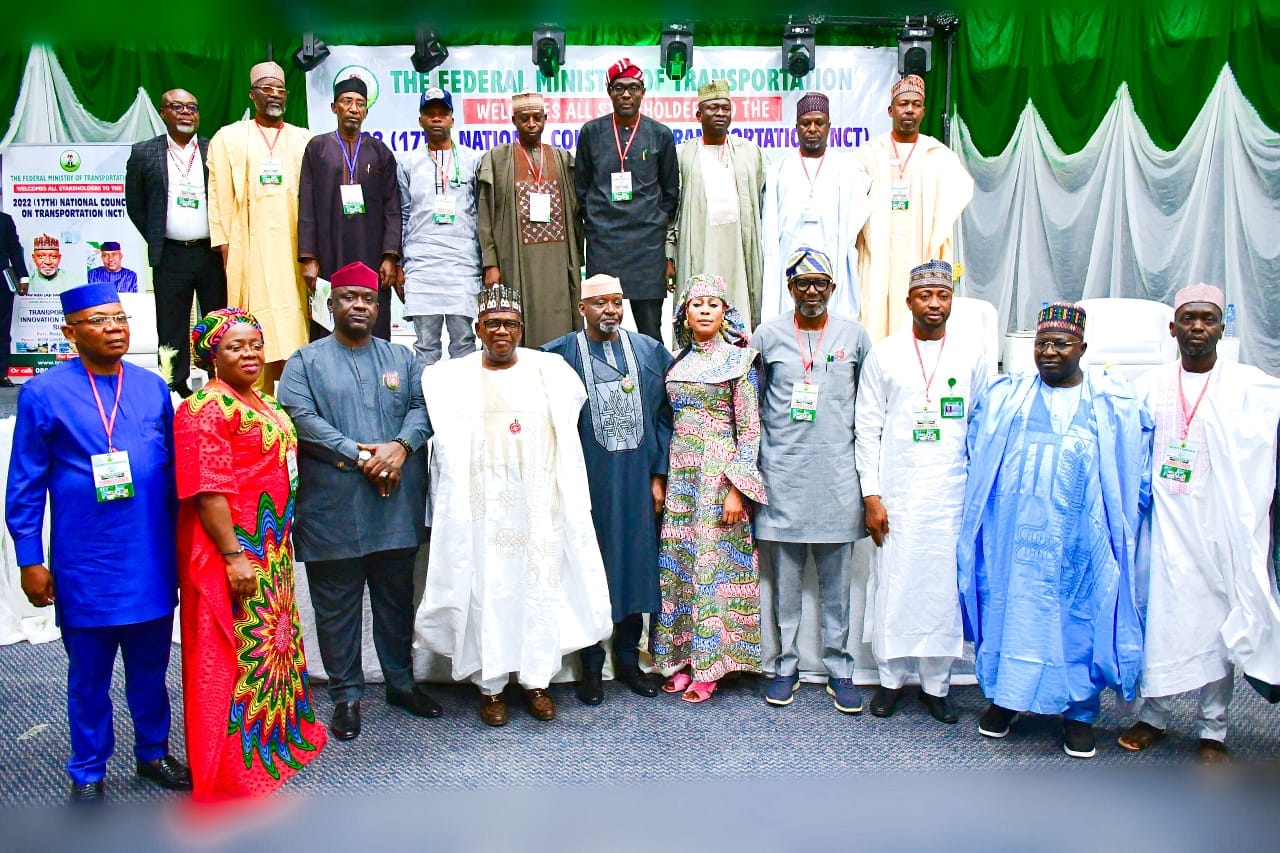By Chimezie Godfrey
The Minister of Transportation, Mu’azu Sambo, has said the Ministry would implement practicable policy initiatives that would advance the efficiency of the transport sector and engender sustainable development of the economy.
Sambo, disclosed this yesterday in Abuja, at the Executive Session of the 17th National Council on Transportation (NCT) with the theme: ” Transportation Technology and Innovation for Socio – Economic Sustainability”.
According to the Minister: “At the end of this 17th session, we are going to come up with a number of resolutions and these resolutions we have decided; we have no choice other than to make sure that they are implemented. If you seat down for the next 20 years and decide on the best of policies, if you don’t implement them, then you have just wasted your time”.
Aside implementation of policies, Sambo noted that technology and ICT has taken the centre stage of human interaction hence this year’s theme, calling on stakeholders to adopt implementable smart goals that would align and be in sync with the dynamic trends and changes that is happening around the globe.
Speaking further, the Minister said:
“Technology contributed 18.44 per cent of the nations GDP in the second quarter of 2022 compared to 6.33 per cent only, contributed by the oil sector. Thus, the need to leverage on the potentials of technology which can ensure efficient movement of goods and services, simplify communication processes and generally improves the over all quality of life.”
Futhermore, he observed that for the transportation to be relevant in driving an innovative and digital economy, stakeholders in Nigeria need to envision the future together and synergize to provide a veritable platform that enables other sectors of the economy to thrive.
Likening what transportation is to the economy to what blood is to the human body, Sambo, said it is unique and dynamic and does not exist for itself but provides a veritable platform that enables other sectors of the economy to thrive, thereby driving social interaction, socio-economic integration, creating. access to education, healthcare, commerce, promoting development among others.
He, therefore called for a more serious synergy between the Federal Government and the States, noting that milestones of the Government will come to naught unless the State governments are on board.
“The majority of our people live in the states, so we expect state government to innovate and come on board and we will provide the enabling environment for the states to thrive”. Sambo said
The Minister of State for Transportation, Prince Ademola Adegoroye, giving the welcome remarks said that the “this year’s theme: “Transportation Technology and Innovations for Socio-Economic Sustainability” is a call for a paradigm shift from the well-known traditional approach to adapting new innovative technologies that will revolutionise the movement of people and goods, transform the design and operation of Transportation systems”.
Adegoroye harped on the need to embrace imminent transition in the transportation sector that will impact positively on the Nigerian transport system, noting that with growth of new technologies such as Big Data, Artificial Intelligence among others, if properly harnessed will guaranty an all encompassing national development for the country.
The Chairman, Senate Committee on Marine and Land Transport, Sen. Danjuma Goje, in his remarks assured of the National Assembly’s support, noting that no country can attain development without viable and sustainable transportation system. He pledged that the Committees members will through their statutory role of allocating resources, oversight functions support the Ministry in its drive to elevate and improve the transport sector.
Similarly, the House Committee Chairman on Marine Safety, Education and Administration, Lynda Ikpeazu, said: “We need to actually develop this sector to contribute to our economy and there’s no gainsaying that if you actually want to develop, you must use technology and unfortunately right now in Nigeria, we are lacking that. That is why I am very happy that there is this kind of forum and I hope that whatever comes out of here will actually be implemented, that it doesn’t get stuck at being an academic exercise. We need to go beyond theory, we need to practicalize whatever we are doing here”.
The 17th National Council on Transportation had in attendance over 20 State Commmissioners and their Permanent Secretaries, Heade of Agencies, Captains of industries and other relevant Stakeholders, numbering over 500.




